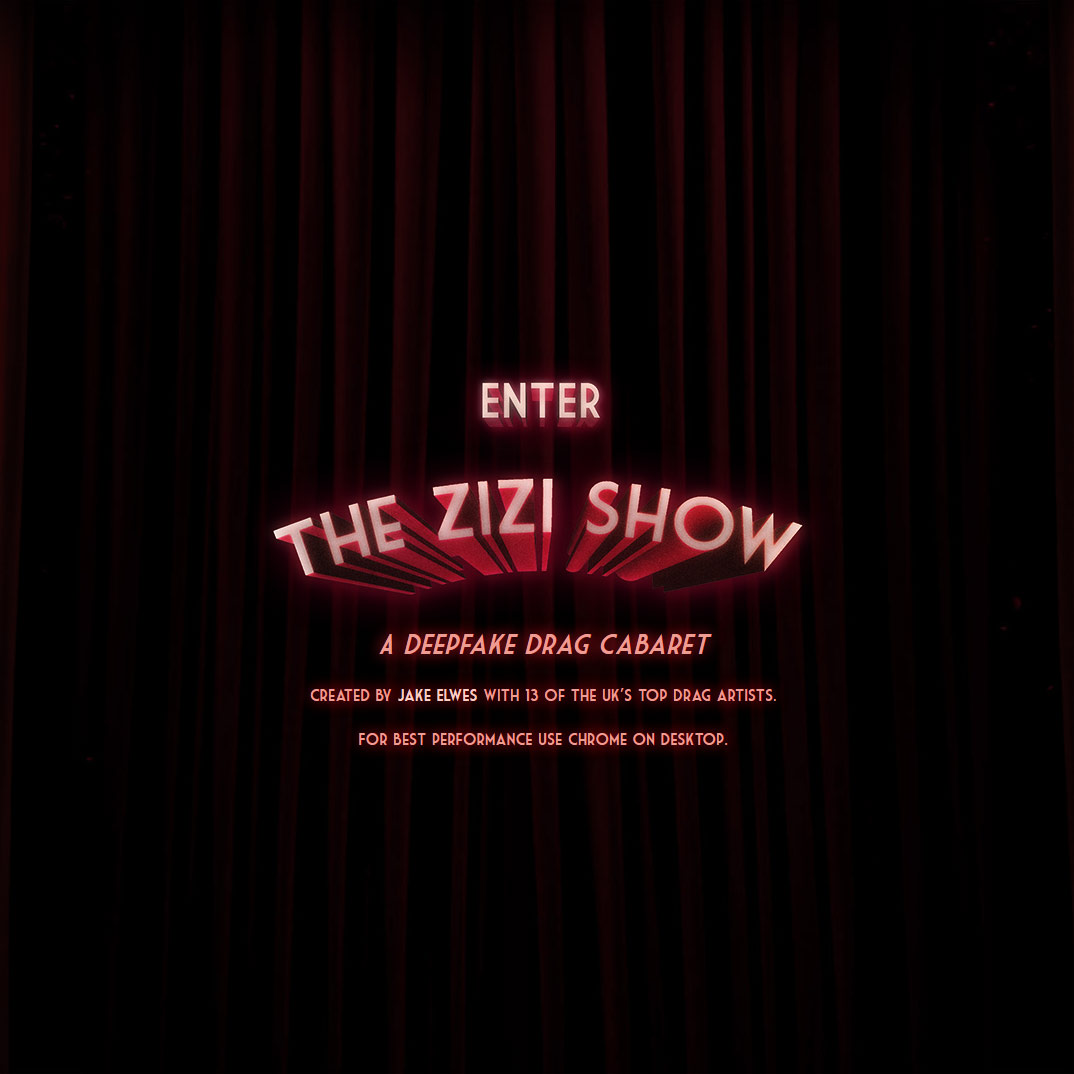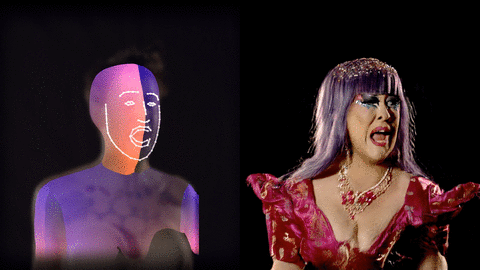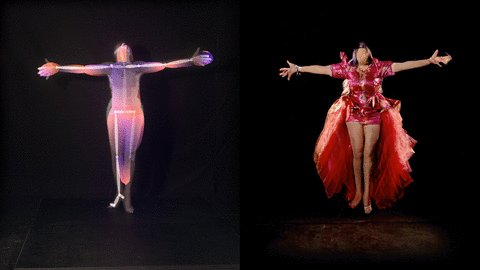
One of the best way to explore the biases in genders, is by putting the genders together and work up from there to see what can happen.
That is at least what artist Jake Elwes was thinking, when he deployed deepfake technology to create digital drag act he calls 'The Zizi Show' to better understand how AIs see human genders.
A drag act is where a person, usually male, who perform by using drag clothing and makeup to be more like a woman, by signifying the female gender prominent signifiers. Often, drag acts are for entertainment purposes only.
And here, The Zizi Show allows users to choose a deepfake drag artist and performance to watch, and switch between different AI identities to expose the methods being used to generate them.
Elwes created this virtual cabaret by training a neural network on videos of 13 drag performers, in order to understand how AI differentiate the different genders.
Over time and after the training, the AI managed to improve the results, capable of creating more and more realistic deepfakes of the performers.
“There are drag kings, queens, biologically female drag queens, trans drag kings and queens, drag monsters,” he said.
“We also made sure there was diversity in terms of race, gender, sexuality.”


This project of Elwes began back in 2019 with Zizi – Queering the Dataset, which investigates how facial recognition algorithms misidentify non-cisgender people due to biases in their training data.
Elwes disrupted these biases by re-training a neural network on 1,000 images of drag performers.
With it, Elwes managed to create a system that is capable of generating more gender-fluid faces.
And this 'The Zizi Show' is part Elwes' 'Zizi Project,' a collection of artworks that explore the intersection of AI and drag.
On Zizi's website, Elwes said:
"Working closely with friends from the London drag scene, in Zizi we have created a ‘deepfake’ virtual cabaret [...] perhaps proving that drag queens, drag kings and drag things will never be replaced by artificial intelligence."
The Zizi Project pushes the boundaries of both drag and AI to discover what AI can teach us about drag – and what drag can teach us about AI."
The Zizi Show shifts the project’s focus onto performance to communicate gender issues to a different audience.
Ultimately, Elwes believes that if artists collaborate with scientists on the development of AI, they can reshape the technology to create a better representation of it that is more acceptable in humans' diverse societies.
To make this project happen, Elwes used examples from various real performers.
They include Me, who is “a master of lip sync with an aesthetic best viewed through a pair of sunglasses,” Oedipussi Rex, “a beardy drag barbarian, with acts as wildly inconsistent as the Gods themselves,” Lilly SnatchDragon, who is "an international, award - winning drag queen, burlesque artist and compere," Tete Bang, the "star of Drag SOS," Ruby Wednesday, an "Award-winning international artist," and more.
And just like any shows out there, a host is needed.
This is where Elwes generated a shape-shifting host for the show called Zizi, by simultaneously training the neural network on images of all the artists.
Because the AI to create Zizi does not know how to differentiate between the bodies, the result is an "amalgamation, a ‘queering’ of the data."